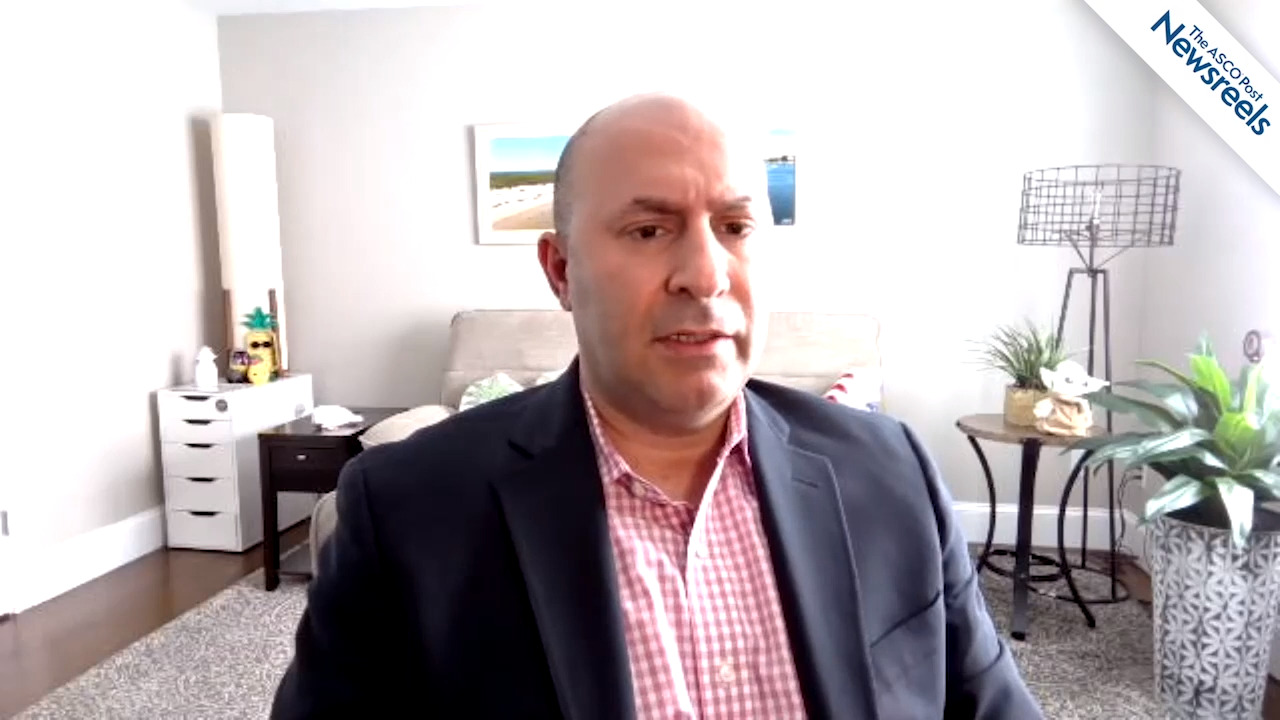Nicholas J. Short, MD, on ALL: Ponatinib Plus Blinatumomab May Help Patients Avoid Transplants
2021 ASCO Annual Meeting
Nicholas J. Short, MD, of The University of Texas MD Anderson Cancer Center, discusses early results from a phase II study which showed that combining ponatinib and blinatumomab in patients with Philadelphia chromosome–positive acute lymphoblastic leukemia may prove to be an effective chemotherapy-free regimen that might reduce the need for allogeneic hematopoietic stem cell transplant (Abstract 7001).
The ASCO Post Staff
Terry P. Mamounas, MD, MPH, of the University of Florida Health Cancer Center, discusses results from the NRG Oncology/NSABP B-42 study, which examined the Breast Cancer Index and its ability to predict whether extended treatment with letrozole benefits patients with hormone receptor–positive breast cancer (Abstract 501).
The ASCO Post Staff
Geoffrey J. Lindeman, MBBS, PhD, of Peter MacCallum Cancer Centre, discusses results from the phase II VERONICA study, which compared venetoclax plus fulvestrant with fulvestrant alone in women with estrogen receptor–positive, HER2-negative, locally advanced or metastatic breast cancer who experienced disease recurrence or progression during or after treatment with CDK4/6 inhibitor therapy (Abstract 1004).
The ASCO Post Staff
Nadia Harbeck, MD, PhD, of Ludwig Maximilian University of Munich, discusses results from the ADAPT HR–/HER2+ trial, which showed, for the first time, improved pathologic complete response and survival in patients with early breast cancer who were treated weekly with a de-escalated 12-week regimen of neoadjuvant paclitaxel plus pertuzumab and trastuzumab (Abstract 503).
The ASCO Post Staff
Cathy Eng, MD, of Vanderbilt-Ingram Cancer Center, discusses two abstracts from a session she co-chaired: the phase II DEEPER trial, which explored the use of FOLFOXIRI plus cetuximab vs FOLFOXIRI plus bevacizumab as first-line treatment in metastatic colorectal cancer with RAS wild-type tumors; and the phase II FIRE-4.5 study, which investigated FOLFOXIRI plus either bevacizumab or cetuximab as first-line treatment of BRAF V600E–mutant advanced disease (Abstracts 3501 and 3502).
The ASCO Post Staff
Toni K. Choueiri, MD, of Dana-Farber Cancer Institute, discusses phase III results from KEYNOTE-564, which evaluated the safety and efficacy of pembrolizumab in the adjuvant treatment of patients with renal cell carcinoma who have undergone nephrectomy for intermediate-high or high-risk disease or no evidence of disease (Abstract LBA5).





